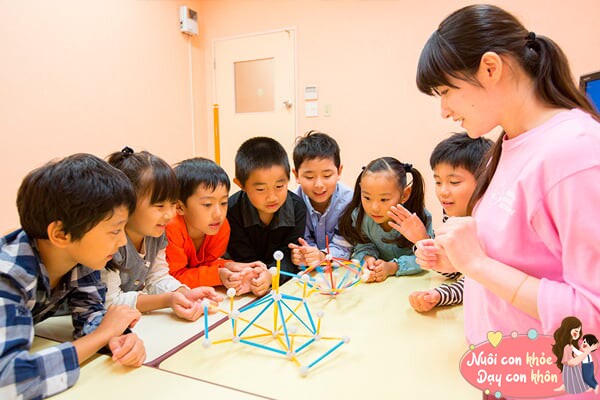Parents who want their children to develop self-learning skills must first ignite their intrinsic motivation. Without this spark, constant urging will be futile.
As one author writes, Parents hope their children will succeed and excel, but only the child’s intrinsic motivation can turn this hope into reality.
So, how do we awaken a child’s intrinsic motivation? It’s not as difficult as it seems. It boils down to four key actions.


Give children autonomy and the power to make their own decisions
In reality, autonomy is the foundation of a child’s intrinsic motivation. When children feel they have control over their lives, it stimulates their initiative and sense of responsibility in learning and other endeavors.
Therefore, parents should strive to give their children decision-making power. Gradually, children can train their prefrontal cortex during the decision-making process. As the prefrontal cortex matures, the decisions children make will become more rational and less driven by instinct. In other words, children will develop greater self-discipline and self-motivation.

Image source: Pinterest.
However, when children are unhappy, parents may also lose their calm. Thus, the best strategy is for parents to change their educational approach, focusing on nurturing intrinsic motivation rather than controlling everything.
Support your child in activities beyond academics, such as crafts or games. Each day, let them decide whether to play first and then do homework, or vice versa. This way, the child won’t get used to being indulged and will develop self-discipline in completing their tasks.
As long as it doesn’t compromise the child’s safety, public order, or the interests of others, parents should strive to give their children the power to make their own decisions.

Give children autonomy and the power to make their own decisions.

Allow children to develop a sense of their own capabilities, while you act as a consultant
Before a child undertakes a task, they instinctively sense its difficulty, as reflected in the saying, Everything is difficult before it becomes easy.
The development of a child’s brain depends on how it is used. If you want to activate the prefrontal cortex, the child must make their own decisions, including achieving a sense of capability.
Capability development goes through four stages: unconscious incompetence, conscious incompetence, conscious competence, and unconscious competence.
Most parents want their children to reach at least the third stage and consciously master a skill, such as math. However, if a child doesn’t navigate the earlier stages on their own, pushing them won’t help.
During this process, parents should act as good consultants, offering support and guidance while allowing children to learn skills through their own efforts. This is the child’s true ability. Conversely, if parents push too quickly, the child may become discouraged and lose their motivation.
What’s the best approach? In reality, parents should take a step back. When a child is making a decision, offer insights and information they may not have considered. Of course, it’s not easy for parents to become consultants, and it requires persistence in the initial months.

Allow children to develop a sense of their own capabilities.

Show unconditional love and acceptance, without judgment
The Growth Mindset indicates that the family must be a safe haven
for children, rather than a source of stress. When children feel loved and accepted unconditionally, they will have the courage to try new things and learn from their failures, and this learning will fuel their motivation.
In reality, a parent’s stress and anxiety can easily transfer to their children. Thus, parents should first address their own stress. Show your happiness and love for your children sincerely and unconditionally. Cherish your children regardless of their grades or achievements.
Parents should calmly face their fears. For example, if parents worry that their child’s poor academic performance will lead to future failure or falling behind their peers, they should remember that even without admission to a top university, their child can still find happiness and success with the right goals.
Allow your children to make mistakes and accept them without criticism. Of course, acceptance doesn’t mean indulgence but acknowledging their flaws.

Show unconditional love and acceptance.

Help children develop a motivated and flowing brain
Neuroscientist Marian Diamond writes, When children are engrossed in their favorite play, they are so happy that they forget their troubles, and these emotions, coupled with strong intrinsic motivation, can guide and reinforce them to work hard, learn, and pursue achievement. There is no other way to attain this influence.
Thus, parents should facilitate this happy state, or flow
, in their children. For instance, engage in fun and beneficial activities with your child, such as playing with Legos or puzzles, exercising together, or doing anything your child enjoys. This often activates a focused state, motivating and concentrating their brain.

Stimulate motivation.
The essence of education is not to stuff knowledge into children but to ignite their inner fire.
The best control is self-control, and the best growth is self-development.
When a child transitions from being pushed
to running actively
, they will spread their wings and embrace life on their own.





































